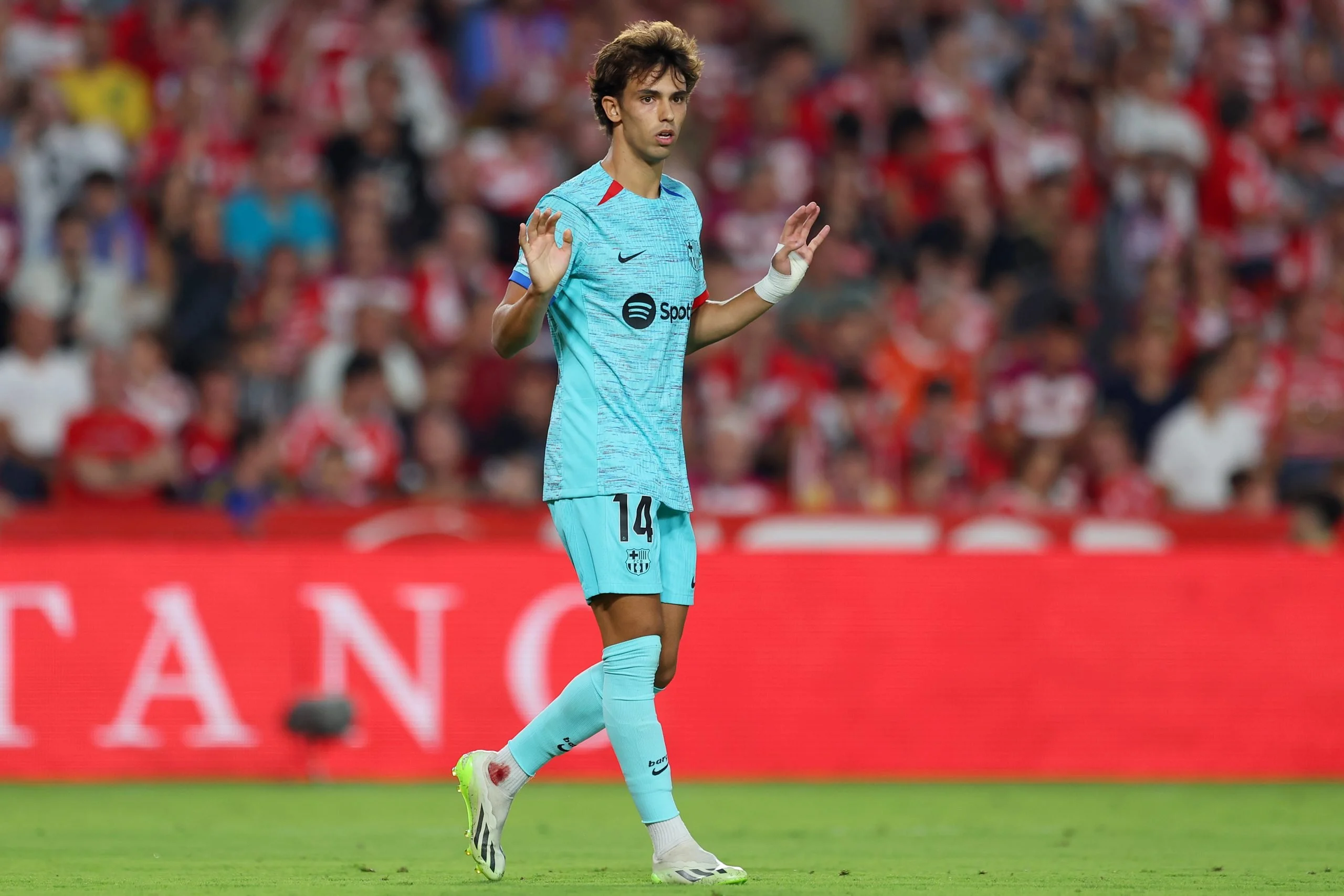In the world of modern football, social media has become a powerful platform for players to express their thoughts and emotions. Barcelona’s Joao Felix recently made headlines for his social media activity after his late goal was disallowed in a match against Granada. The Portuguese sensation ‘liked’ a post criticizing the decision, igniting a firestorm of debate and discussion within the football community.
The Disallowed Goal:
It all began in a crucial La Liga fixture between Barcelona and Granada, with both teams battling fiercely for points. Joao Felix, the 22-year-old Portuguese forward, had a standout performance throughout the match. In the dying minutes of the game, he thought he had secured a dramatic late winner for Barcelona when he found the back of the net. However, the celebrations were short-lived as the referee disallowed the goal due to an offside call that left many fans, players, and even the Barcelona coaching staff stunned.
Joao Felix’s Reaction:
In the aftermath of the match, Joao Felix took to social media to vent his frustration. He ‘liked’ a post that criticized the decision to rule out his late goal. This seemingly innocuous action quickly caught the attention of football fans and pundits alike, leading to intense discussions about the role of social media in modern football and the emotional reactions of players.
The Power of Social Media:
The incident highlights the influence that social media platforms have in today’s football landscape. Players are no longer confined to expressing their views through post-match interviews or official club statements; they can instantly connect with their fans and followers. While this provides a direct channel for athletes to share their thoughts and emotions, it also exposes them to heightened scrutiny and potential controversies.
The Debate:
The ‘like’ from Joao Felix brought the disallowed goal back into the spotlight. Many fans rallied behind the young talent, condemning the officiating decision. Some argued that such actions on social media are an essential outlet for players to express their frustrations and disappointment, as they do not have the luxury of instant video reviews during matches. On the other hand, critics argued that players should show more restraint and respect for match officials, even in the face of contentious decisions.
Club’s Response:
As the controversy escalated, Barcelona issued a statement in which they expressed their full support for Joao Felix and his right to express his feelings. The club emphasized the importance of respecting referees’ decisions while acknowledging the emotions that run high during intense matches.
Conclusion:
The incident involving Joao Felix’s ‘like’ on social media has ignited a broader conversation about the role of players’ emotions, social media, and their interactions with match officials and fans. While it is important for athletes to have a platform to express themselves, it is equally vital for them to strike a balance between voicing their opinions and respecting the integrity of the game.
In the digital age, social media will continue to be a double-edged sword for footballers. It provides a means for them to connect with their fans and express their emotions, but it also exposes them to immediate scrutiny and controversies that can have far-reaching consequences. Joao Felix’s incident serves as a reminder of the evolving landscape of football, where the boundaries between on-field action and online presence continue to blur.
